Advanced International Aquatic Therapy Techniques (South Africa 2023)
See South Africa page for dates, location and course fee details.
Course Description
Dive into the most comprehensive, in-depth, practical, hands-on, Aquatic Therapy course offered anywhere!
This course will massively expand your skills in all areas of Aquatic Therapy for neurological, orthopaedic and paediatric patient populations.
Learn in an exclusive group with a maximum of 10 participants. You’ll receive extensive hands-on guidance from Peggy for all of the techniques.
Gain skills in Bad Ragaz, Halliwick rehab applications, Ai Chi, Aquatic Pilates, Aquatic Manual Therapy, Trunk/Joint Stabilisation, Burdenko, WATSU, Open & Closed Kinetic Chain Exercises, and Functional Skills Training. Experience Peggy’s unique international approach to adapting these techniques to create exceptionally effective treatment programs.
Maximise the effects of aquatic therapy to decrease spasticity, improve balance, increase strength, improve posture, improve trunk and proximal stability, increase range of motion, decrease pain, and improve functional daily life skills.
You’ll leave the course with over 100 new techniques plus adaptations and variations to use with your patients!
Come join us! Your patients will improve faster!
Prerequisite
This course is open to healthcare professionals, including physiotherapists, occupational therapists, and biokineticists.
Objectives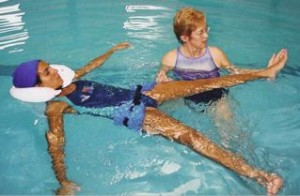
Upon completion of this course, participants will be able to:
- Identify the physiological effects of immersion, plus the indications and precautions for the use of Aquatic Therapy Techniques.
- Utilise Halliwick to facilitate righting and equilibrium reactions, improve balance, improve postural awareness, improve trunk stability, increase range of motion, increase strength and improve functional skills.
- Utilise Bad Ragaz for evaluation as well as treatment in comprehensive hip, shoulder and trunk stabilisation programs for the improvement of mobility, strength, coordination and proprioception.
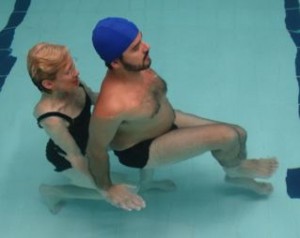
- Adapt and modify exercises and activities using metacentric effects, turbulence and buoyancy to appropriately challenge each patient.
- Use WATSU and Ai Chi techniques to decrease pain, increase range of motion, decrease spasticity, improve posture, and decrease muscle spasms.
- Design comprehensive aquatic treatment programmes for neurological and orthopaedic patient populations, modifying techniques to fit the needs of each patient.
Schedule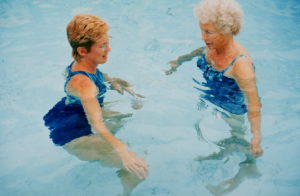
Day 1
8:00 Clinical Decision Making: Land vs. Water
Clinical Decision Making: Active vs. Passive Aquatic Therapy Techniques
10:00 Pool Lab:
Bad Ragaz Ortho and Neuro Applications, Including Passive, Isometric, and Isotonic Patterns For The Trunk
12:30 Lunch
1:30 Physiological Effects of Immersion
Bad Ragaz Patient Treatment Videos and Discussion
3:00 Pool Lab:
Bad Ragaz Ortho and Neuro Applications for the Trunk and Extremities
5:00 Completion
Day 2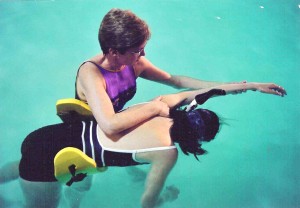
8:00 Pool Lab:
Bad Ragaz Ortho and Neuro Applications
Prone with Mask and Snorkel
12:30 Lunch
1:30 Halliwick Review of 10-Point Program
Halliwick Patient Treatment Videos and Discussion
3:00 Pool Lab:
Halliwick Ortho and Neuro Applications
5:00 Completion
Day 3
8:00 Pool Lab:
Halliwick Ortho and Neuro Applications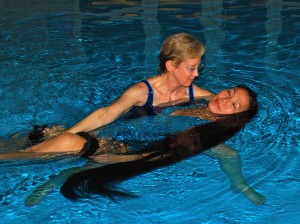
Shallow and Deep Water Techniques Including:
Trunk Stabilisation
Proximal Stability & Extremity Strengthening
Balance and Coordination
Functional Skill Training
12:30 Lunch
1:30 Functional Skills Training Video and Discussion
3:00 Pool Lab:
Aquatic Manual Therapy Techniques
Combining Techniques into Treatment Programs
5:00 Completion
Day 4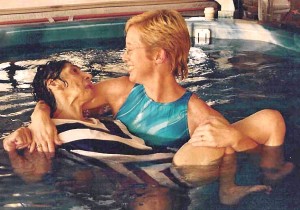
8:00 Clinical Decision Making: Active vs. Passive Aquatic Therapy Techniques
Physiological Effects of Relaxation on the Autonomic Nervous System
10:00 Pool Lab:
Aquatic Body Mechanics for Passive Techniques
Introduction to WATSU
12:30 Lunch
1:30 Patient Treatment Videos and Discussion
3:00 Pool Lab: WATSU and Ai Chi
5:00 Completion
Day 5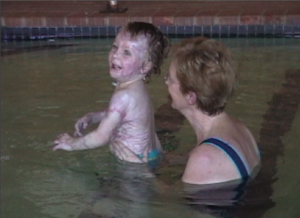
8:00 Pool Lab:
WATSU and Ai Chi Techniques
12:30 Lunch
1:30 Precautions for Aquatic Therapy
Patient Treatment Videos and Discussion
3:00 Pool Lab:
WATSU and Ai Chi Techniques
5:00 Completion
Day 6
8:00 Pool Lab:
Adapting Passive Techniques for Orthopedic and Neurological Impairments
12:30 Lunch
1:30 Patient Treatment Videos and Discussion
3:00 Pool Lab:
Combining Techniques into Treatment Programs
5:00 Completion
What to bring to your Advanced International Aquatic Therapy Techniques course
- Towels
- Swimming Costumes (2 or more recommended)
- Robe recommended for tea times
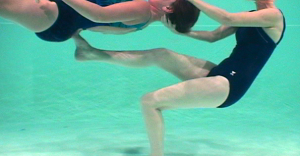
- Water Bottle
- Earplugs or Bostik Prestik
- Your own food for lunch and snacks. Tea and coffee are provided.
- A mask and snorkel set if you have one
- Kickboard, if you can bring one or two. Larger size is better
- Aquatic Ankle Weights, if you have them
- Pen and paper
- A printed copy of the course manual from the PDF file emailed to you before the course
or electronic copy on your tablet or laptop - If you have any special aquatic equipment you purchased in SA, please bring it along to show to the group.
return to South Africa 2023 full course list
